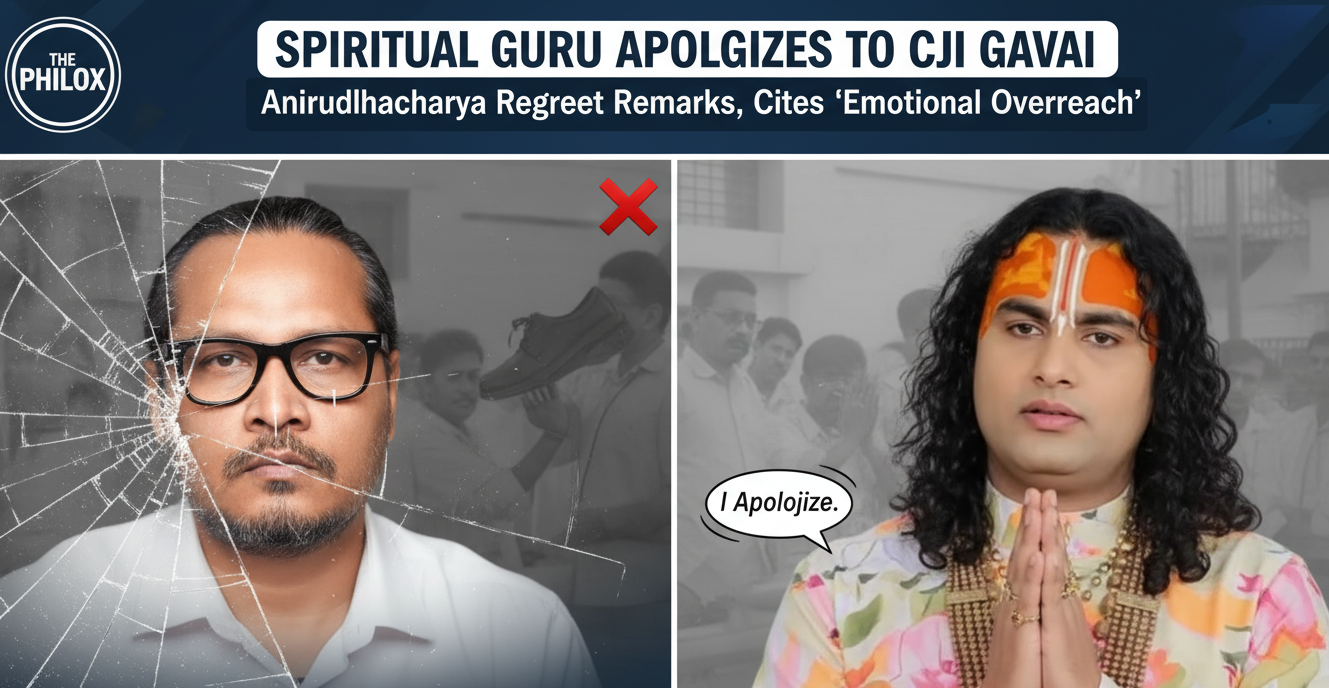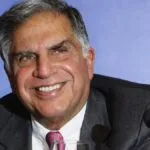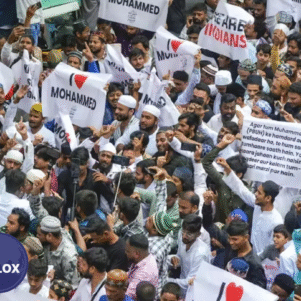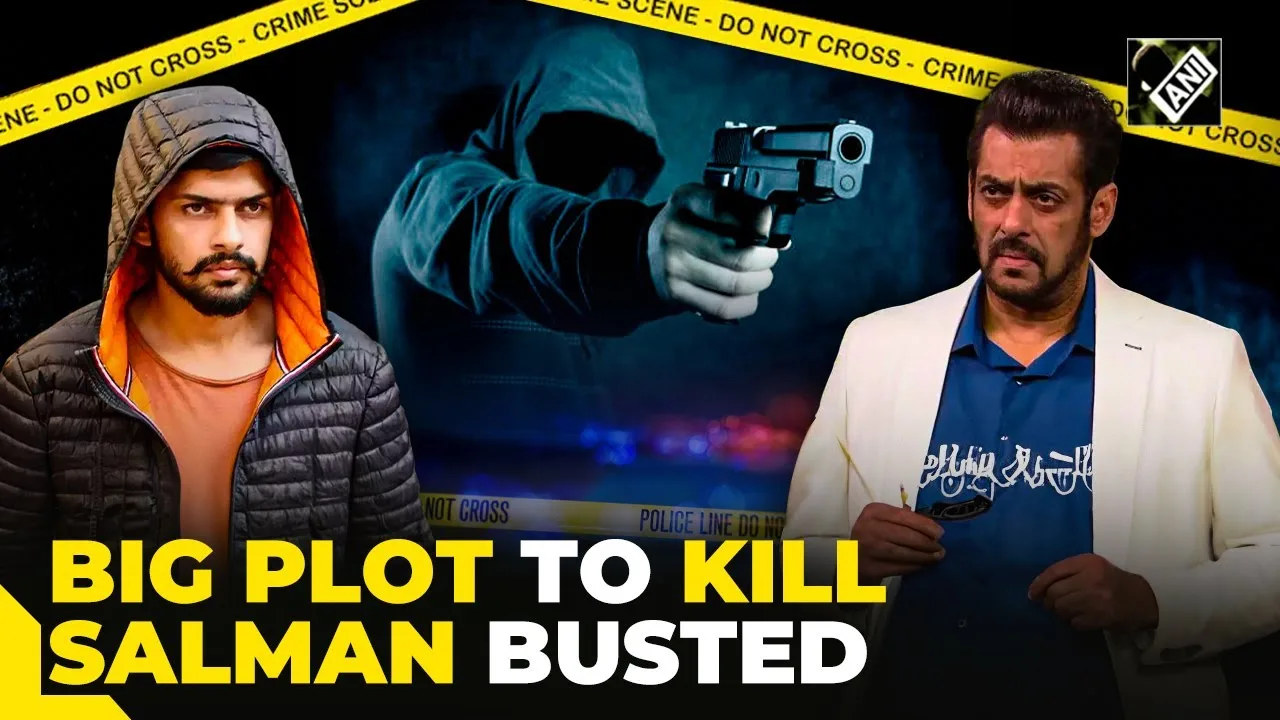In a political twist, which has briefly lowered the political temperature of the Indian judiciary, known religious orator Aniruddhacharya has made a blanket and unconditional public apology to Chief Justice of India B.R. Gavai against his earlier incendiary comments.
The religious figurehead, whose incendiary speech about the CJI about the comments made by the CJI at a recent temple idol case had become viral and had been quoted as a potential forerunner to the outrageous courtroom shoe-hurling incident, released a video statement acknowledging that he had gone through a moment of emotional overkill.
The apology, which was made in a tone of sorrow, instead of his usual emphasis of passion, pointed out how sorry he was that his words could have hurt the dignity of the constitutional office.
Repentance by Aniruddhacharya, which was aired in his ashram, was well planned to avoid connection with the resultant physical demonstration which emphasized that violence cannot belong in democratic or religious communication.
He recognized the seriousness of associating his remarks with the unprecedented rapine of the Chief Justice, and said that he now realized the unintended and unsafe strength of his utterances in the highly inflammable arena. This abrupt change in rebellion to contrition is readily thought to have been an effort to preempt the growing tension of the legal fraternity and avoid criminal contempt action, which was being pursued by other public interest groups in a vigorous way following the courtroom incident.
The justification of the apology by the legal society has been varied. Some longstanding advocates considered it as a necessary move towards the restoration of a sense of decency and the need to respect the separation of powers between the judiciary and the populace whilst others dismissed the apology as a calculated self-rewarding move to avoid the search of prosecution. People who are critical say that an apology spoken is not enough to repair the serious rift that was created by the first threats and that a concrete pledge needs to be made to encourage legal awareness and respect of institutions among his vast number of followers. The scandal attracts attention to the deep-rooted issues that modern courts have to solve sharing judicial freedom on the one hand and protecting the integrity and safety of court officials in case of active negative publicity on the other hand.
It is an unknown new step of the epic of the spiritual leader against the highest judge. It is up to the Attorney General and the Supreme Court itself to make the final decision on whether the apology should be accepted or it should take contempt action. No matter the result of the legal battle, the fact that Aniruddhacharya acknowledged his mistake has drawn a precarious temporary line in what can be characterized as a tense period when influential social actors, be it of a religious or political kind, indulge in a critical approach to the constitutional organs of the state.








